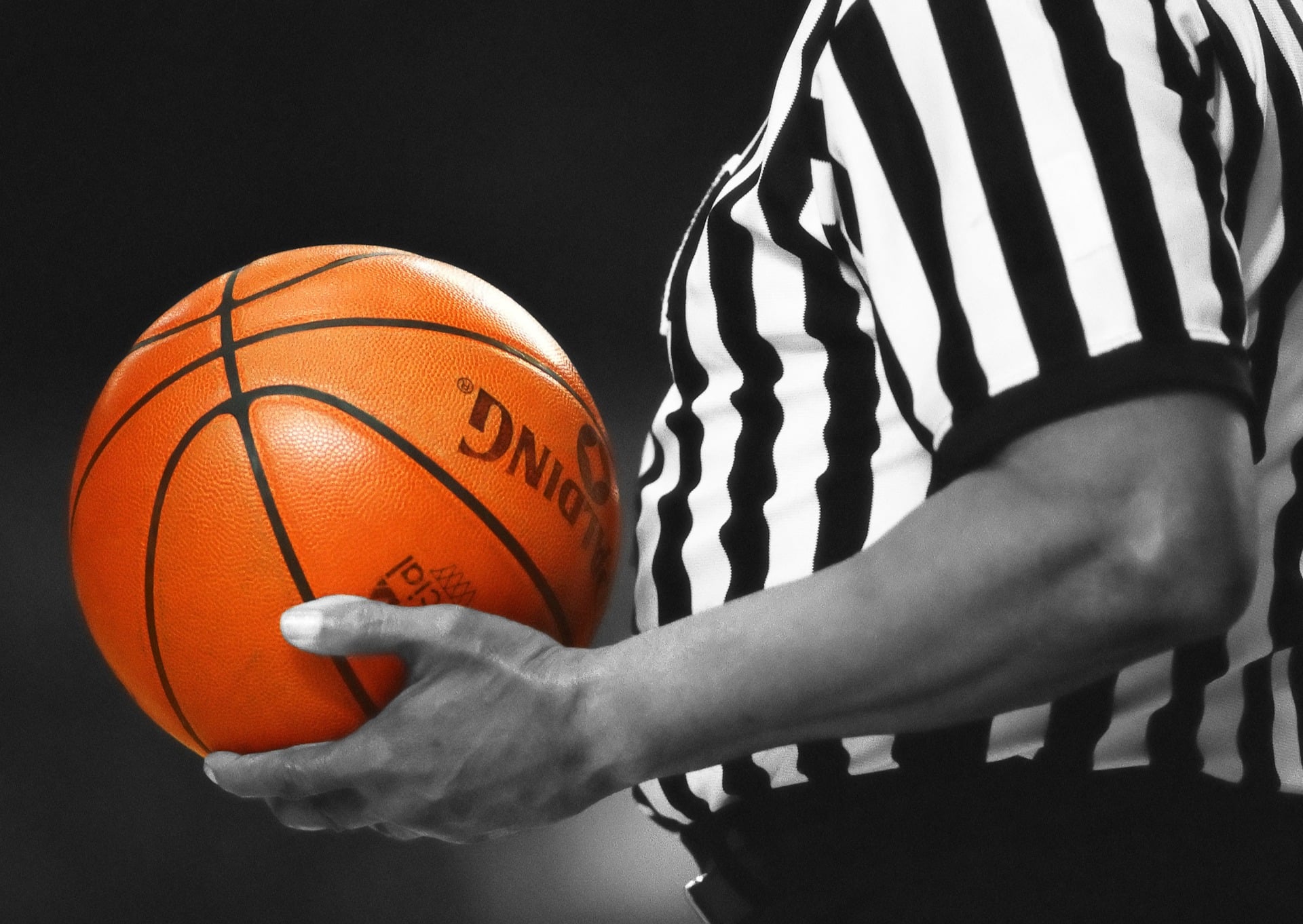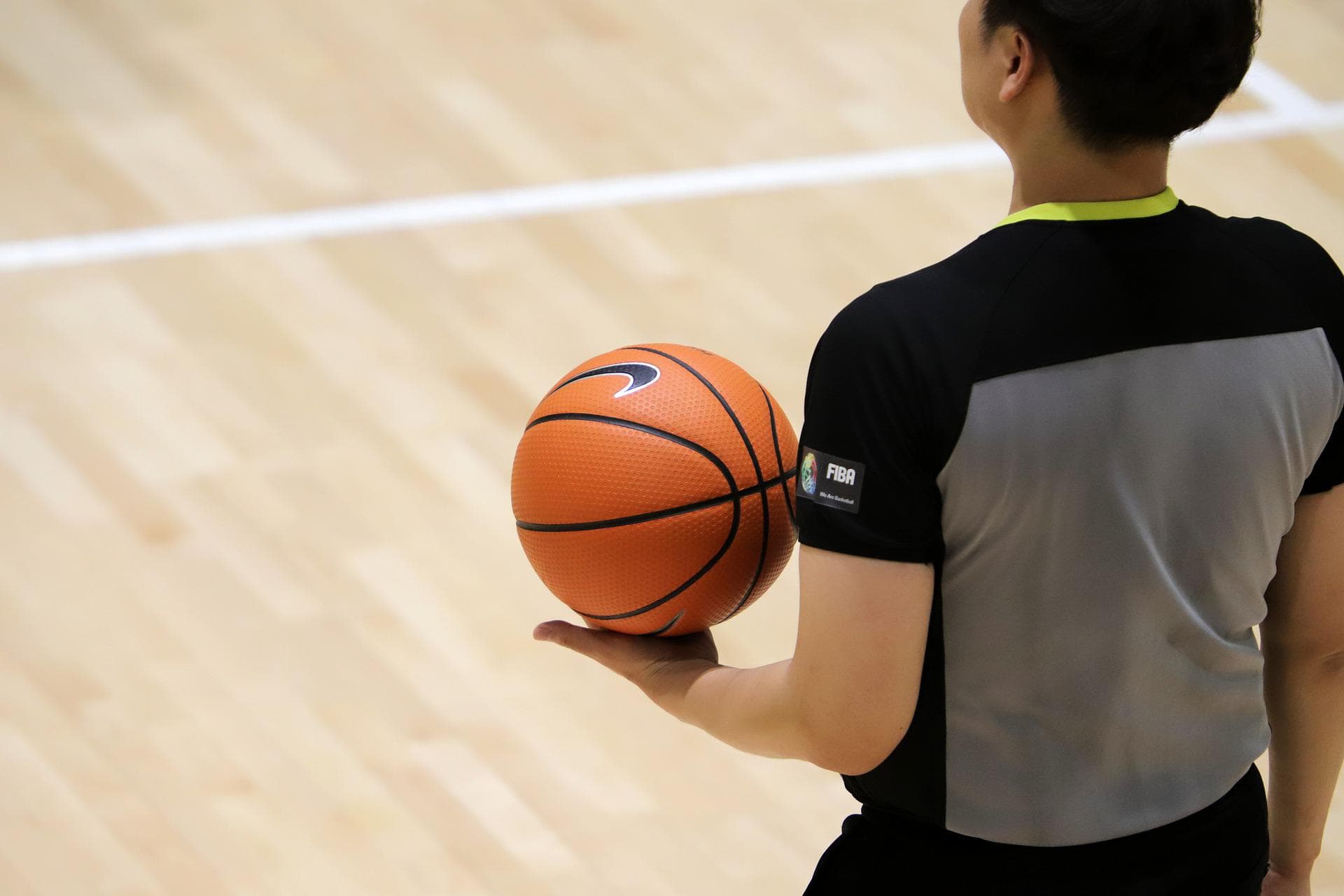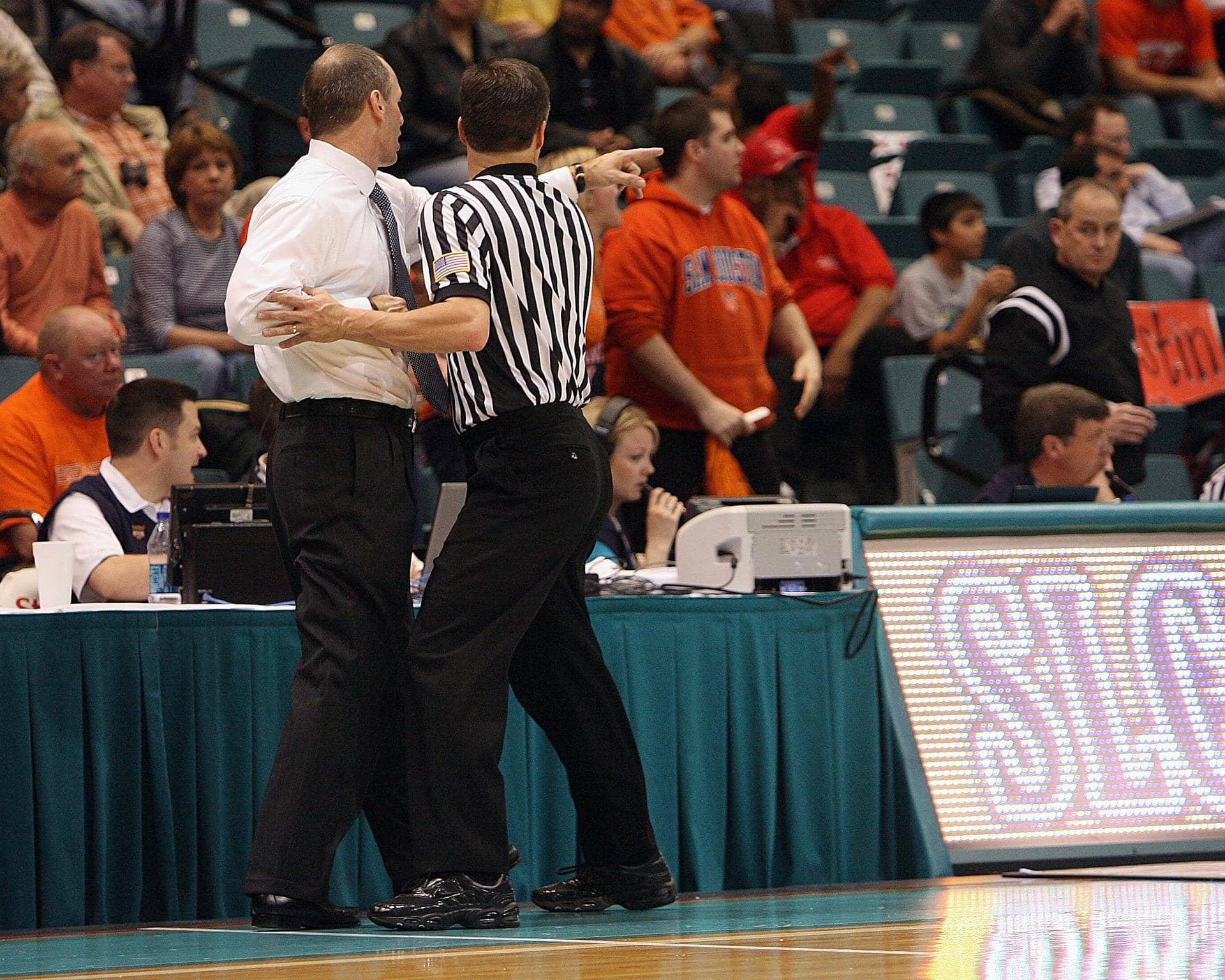If you think a referee’s job is to simply blow the whistle and make the call, think again. Whatever the call is, the sound of the whistle is bound to piss somebody off. Therefore, a ref needs more than just a deep understanding of the game; all the intangibles such as patience, common sense, and courage are also necessary. This article endeavors to answer the question, “How hard is it to referee a basketball game?” and more information on how to referee a basketball game.
What Does it Take to Referee a Basketball Game?
Apart from an extensive knowledge of the game, there are things that should be considered. Here are some things that you need to keep in mind before deciding to become a referee:
Physical Requirements
While there are no height or weight limits when becoming a referee, you need to be in good physical shape. Did you know the legendary NBA referee Dick Bavetta ran 10 miles every day like clockwork? He needed to do that because, on average, referees run two to three miles a game. Therefore, it’s critical that the referee can handle the physical rigors that the game requires.
Mental Demands
Any work requires concentration, and basketball is no different. You need to be focused on the game and not be distracted by all the yelling going on. Also, players, coaches, and fans throw all types of verbal assault, and you should be able to handle that.
Training
There are referee lectures and courses you need to attend and complete. Joining a local referees association is an excellent way to keep updated with all the ref schooling available in your area. This requires time and dedication.
Monetary Requirements
Referees need to be certified, and that will cost you money. Most of the time, you’ll start in the lowest levels, perhaps youth basketball, and work your way up. Again, dedication is the key. Your salary often depends on the level you’re working at, so you’ll need to stick and trust the process. You will also need some special equipment such as shoes, striped shirts, slacks, etc.
How Long Does It Take to Become a Basketball Referee?
Aside from the certification and training, a referee must have at least two years of experience in a related field. He must be familiar with the concepts and practices of refereeing and the game itself. Most basketball referees start in recreational and high school leagues before moving on to officiate college games. After a few years and some good recommendations, they are ready to advance to professional basketball.
While a college degree is not an absolute need, it is definitely an advantage. You see, the duties of referees in basketball are diverse and sometimes complicated. He should be a stickler to the rules and make quick decisions on the feet to manage the game. That is why people with an associate’s degree or an equivalent have an edge if they take on a career in officiating.
How to Referee a Basketball Game
With all the physical and mental demands of being a referee, one thing holds true: Refs are the authority figures of the game. And with authority comes a considerable amount of responsibility. These are some of the things to know on how to referee a basketball game:
Handle Yourself with Confidence
Remember, you are an authority figure, so you should act like one. That doesn’t mean you need to exude an air of superiority, but it’s critical to let the coaches and players know you will not be pushed around. When blowing the whistle, do it firmly and be loud when announcing the call. That gives a clear message that you are confident and that you mean business.
Do Not Feel That You Always Have to Be Right
Nobody is 100% right on all the calls. Just because you are the authority on the court doesn’t mean you have to act like you are right all the time. The best way to get out of that bind is to admit it to the players or the coaches. On deciding who touched the ball last, ask for your co-officials’ help, and let the one who has the better angle give the call. This will earn you the respect of your peers, the players, and the coaches.
Be In the Middle of the Action
Not literally “in the middle,” but you get the point. Knowing how to get a good position to have a better view of the action is a skill that you must learn. Of course, you’ll get better at it over time, and you’ll find out it will lessen the wrong calls on your part.
Don’t Let Certain Situations Get Out of Hand
Because basketball is a contact sport, bumping, banging, and pushing are common. However, if these physical plays get too spicy, don’t hesitate to remind the players to keep their cool, or they’ll warrant a tech. Go call the foul before things take an ugly turn. Quickly diffuse situations if ever you notice one.
Keep Your Own Emotions in Check
While players could let their emotions go as the game goes on, be reminded that referees also have the tendency to take things personally. Your job is to be impartial and make the call as it is. Just because a player from Team A yelled at you doesn’t mean you have to take your “revenge” and make bad calls in the other team’s favor.
Make It a Point to Improve Every Game
Mistakes will always be made, but the most important thing is to learn from the experience and be better at what you do. It is imperative to stick to it. When it’s not the regular basketball season, stave off refereeing rust by volunteering on youth programs, 3-on-3 tournaments, or any basketball game that you can find. Constant practice will pay off in the long run.
Communicate
During the course of the game, players and coaches may ask questions and seek clarifications about a call. Don’t ignore them. Tell them what they are doing wrong and even offer some tips. Of course, you also have to draw the line somewhere, but the point is, answer them if they truly want to know what’s going on, and they are not just trying to agitate you.
Warm Up
Sometimes, you need a warm up more than the young, spry legs of the players. Refereeing is physically taxing with all the running and whatnot. And, of course, your refereeing career will go off only as far as your body can take you, so you don’t want to be on the sidelines for long.
Is it that Hard to Referee a Basketball Game?
To be honest, nobody is going to hand you the world on a silver platter. Every job has its own challenges, but the key is to be prepared for everything.
In the case of a referee, he or she needs to meet the physical and mental demands and other variables on the court. Referees will always have to deal with situations between players, coaches, and sometimes, even parents. If you familiarize yourself with basketball officiating rules of the league along with hard work, things will work themselves out.
Wrapping Things Up: How Hard Is It to Referee a Basketball Game
A referee’s job is less about blowing the whistle and making the call and more about preparation. Like any job, it has its own set of challenges, and you will definitely encounter difficulties. Some of the hardships are both mental and physical in nature, not to mention the years of training and experience that one must undergo.
With that being said, if you’re prepared and ready to tackle these challenges, you have half the battle already won. For instance, if you want to know how to referee a basketball game, being even-keeled and good-natured could be just as important as your knowledge of the game. Desirable human qualities such as impartiality, patience, and communication are keys.
Of course, because you are the authority figure on the basketball court, you must also learn how to balance your responsibility. Be confident in making your calls, but at the same time, you must also own up to your mistakes. You must be quick to diffuse situations and not let things get out of hand. Communicate with your fellow refs and address the coaches and players if they respectfully want clarifications. Make it your goal to improve, and you’ll be fine.
So if you’re genuinely wondering, “How hard is it to referee a basketball game,” well, it is hard. But then again, you won’t ever be successful in anything in life if you can’t learn how to rise above the challenges. It’s all part of the game.
Did you enjoy this post? Then you’ll love the other basketball FAQ articles. Check them out below:










